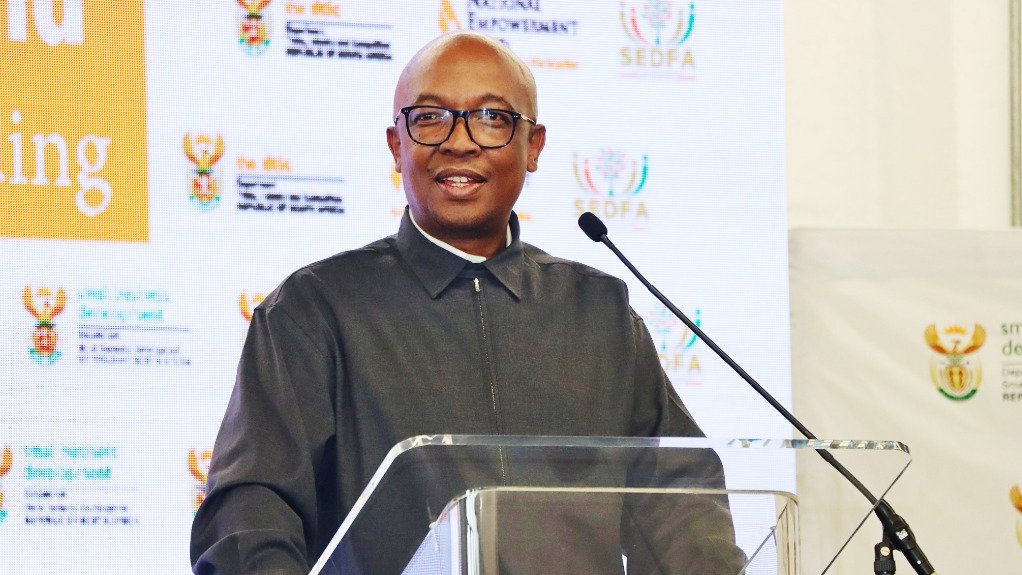South Africa has requested that the US refrain from raising tariffs above the prevailing 10% level should negotiations on a new trade framework not be concluded by July 9, when a 90-day pause on “reciprocal tariffs” of 30% against South African exports is due to expire.
On April 2, President Donald Trump announced that South Africa faced tariffs of 30% when unveiling ‘liberation day’ tariffs on all of America’s trading partners.
Trump then reduced the tariffs to a 10% base rate on April 9 for 90 days, with the expectation that countries use the period to make proposals that addressed the US’s trade-deficit concerns.
However, South African steel, aluminium and automotive exports continue to face 25% tariffs as imposed under Section 232 of America’s Trade Expansion Act.
In a briefing to lawmakers, Trade, Industry and Competition Minister Parks Tau said there was currently uncertainty as to what decision the US would make on July 9 and that South Africa was exposed to both direct and indirect trade and growth risks as a result of global developments.
Department of Trade, Industry and Competition (dtic) deputy director-general for trade Ambassador Xolelwa Mlumbi-Peter said that, given that the US was engaging in a number of trade talks, it was unlikely that South Africa and the US would have finalised their negotiations by July 9.
“So we have put forward that, while the negotiations are ongoing, it would be important that the tariffs applicable to South Africa should be lower, or at least not more than the 10% level, and that the preferential market access for key value-added products be preserved,” she explained.
In addition, South Africa has requested that its Africa Growth and Opportunity Act preferences that still prevailed through the Most Favoured Nation duty also be maintained during the period of the negotiations.
Mlumbi-Peter told the Portfolio Committee on Trade, Industry and Competition that, following the Oval Office meeting between Trump and President Cyril Ramaphosa, South Africa had put forward a proposal for a framework agreement, but that the details still had to be negotiated.
The proposal was premised on addressing not only America’s concerns in relation to its trade deficit, but doing so “in a manner that meets South Africa’s development objectives”.
CURRENT OFFER
She also confirmed to lawmakers that the following elements had been included:
- The procurement of gas from the US, alongside investment by the US in gas infrastructure in South Africa and technology cooperation to unlock domestic gas production;
- Addressing agricultural market access from both sides, including the US’s concerns in relation to beef, pork, poultry and blueberries and South African market access for mangos, litchis, citrus and avocados;
- Promoting two-way investment in critical sectors;
- Cooperation on critical minerals that still leveraged South Africa’s minerals processing capabilities;
- Building on existing cooperation between development finance institutions from both countries;
- Engaging on tariffs in a manner that did not undermine regional integration and protected the Southern African Customs Union; and
- Investigating greater cooperation on digital trade.
Tau emphasised the significance of the trading relationship with the US, speaking ahead of a presentation showing that South African exports of goods to the US stood at $14.9-billion in 2024, while its imports of goods from the US stood at $5.8-billion.
It also showed that the US enjoyed a trade surplus in services, having exported $3.52-billion to South Africa last year, while South African services exports stood at $2.19-billion.
Tau said the uncertainty over trade was weighing on global growth and would also affect South Africa’s immediate growth prospects.
INCLUSIVE GROWTH PATH
However, he said that internal factors also needed to be addressed in light of the country’s ongoing “lacklustre” growth performance and outlook.
He reported that a revised industrial strategy was under development and was being canvassed by the dtic both internally with other departments and with stakeholders ahead of Cabinet approval.
“We have been doing extensive work with regards to industrial policy and, linked to the industrial policy, on an ‘Inclusive Growth Path’, which would in many ways be the implementation component of the draft industrial policy.
“We should be able to share, fairly soon, what the proposals of the industrial policy are,” he added, indicating that it was undergoing various review processes including by the directors-general.
“I have confidence that a lot of the proposals that have been put forward on both the industrial policy and the Inclusive Growth Path have the capacity to shift the needle on the dial.”
EMAIL THIS ARTICLE SAVE THIS ARTICLE ARTICLE ENQUIRY FEEDBACK
To subscribe email subscriptions@creamermedia.co.za or click here
To advertise email advertising@creamermedia.co.za or click here











